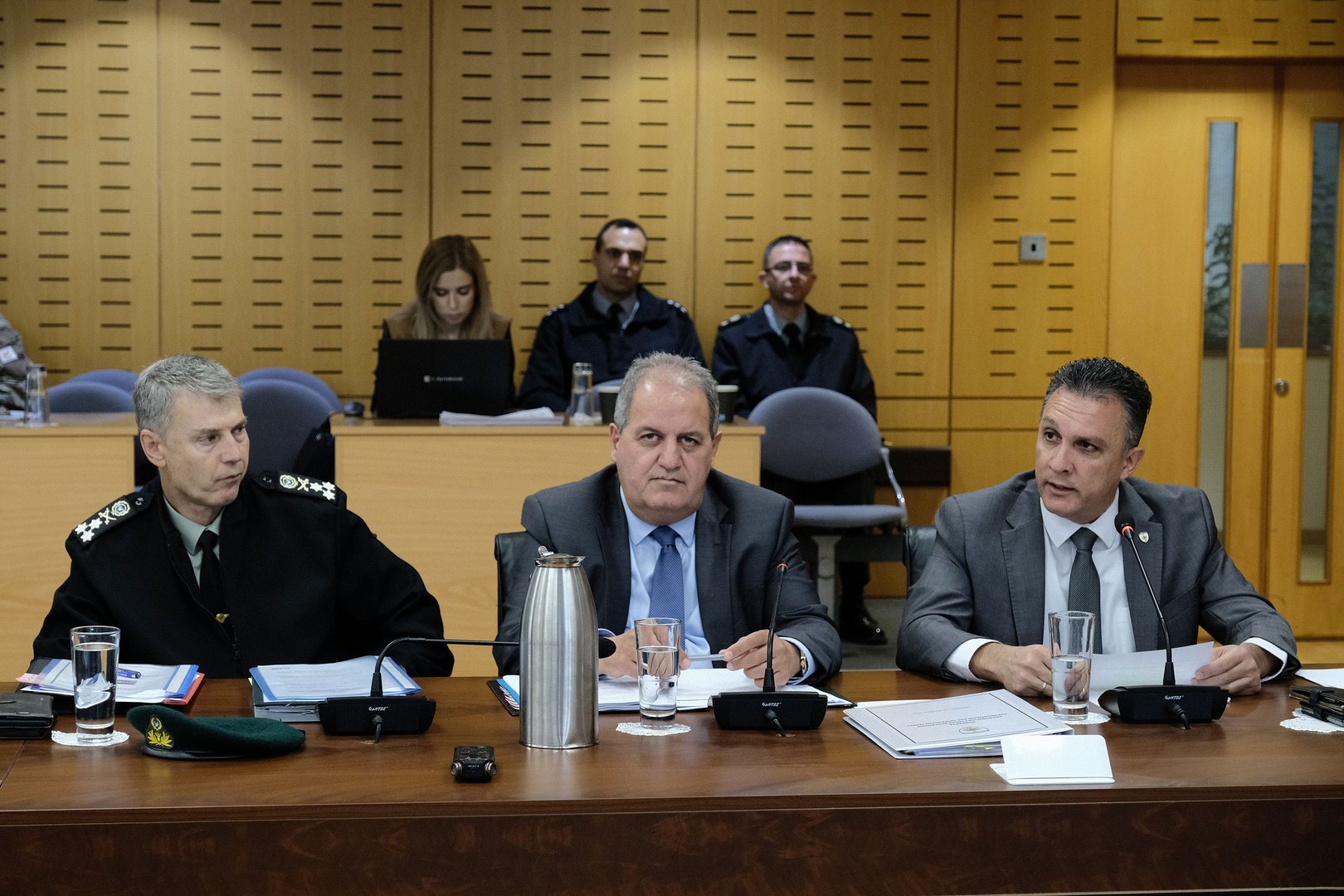Cyprus is committed to increase defence spending to 2 per cent of GDP in the next five years, MPs were told on Friday.
Presenting the defence ministry’s 2024 budget to the House finance committee, minister Michalis Giorgallas said spending for next year was earmarked at €553.1 million. Members of the House defence committee were also present at the meeting.
Although not a member of Nato, the commitment to reaching 2 per cent of GDP on defence mirrors the requirement of the international organisation for its member countries.
Giorgallas expressed the commitment to increase spending to 2 per cent of GDP over a five-year period. This would surpass some €560 million per annum. “Defence is a priority and the 2 per cent is a commitment,” he said, but did not specify to whom. Most likely as Nato and the EU have 22 states in common, the commitment stems from the EU angle.
“This goal requires planning,” Giorgallas said, especially at a time when we have to be doubly careful because we are in “war economy years” and “everyone is running to buy…”
Prices were going up and delivery dates being pushed into the future, so orders need to be made ahead of time, he said.
The minister said his foreign affairs counterpart was taking advantage of the possibilities offered by the EU for collaborations as “a tool we already use” to make joint purchases with other European countries.
“At the same time what concerns us is the effort to modernise the arsenal of the National Guard by replacing old equipment that we can no longer maintain in the long term so we have made our planning for what the National Guard needs to do in the next ten years,” the minister said.
This will involve “little by little” through the annual budgets to build what our country needs – defence.”
“It’s not a pre-election slogan, it’s a necessity,” he added. “If we don’t do it, we will be accountable to the Cypriot people because we won’t be able to ensure what is also our goal – security, peace, and the sovereignty of the Republic of Cyprus”.
Giorgallas also spoke of the “most critical period” the world has been going through since Russia’s invasion of Ukraine in early 2022, compounded by Israel’s war with the terrorist group Hamas “with the risk of the conflict expanding into a wider armed crisis in the Middle East”.
“In addition, to the unstable regional geopolitical situation is added the endless Turkish provocations and intransigence, which in no way allow complacency on our part. On the contrary, they require us to show the necessary maturity and seriousness,” the minister said.
Cyprus has a number of goals going forward, Giorgallas said. One is to strengthen and enhance the deterrent power and military capabilities of the National Guard.
The government has already proceeded with a study for the equipment that will be needed.
“We are also participating in high-tech defence programmes in the EU and maintains “an active and substantial presence in all the institutions, actions and programmes” of the bloc’s permanent structured defence cooperation programme Pesco.
He also referred to the importance of Cyprus’s various bilateral, tripartite and quadripartite agreements with various countries in the region such as Greece, Israel and Egypt, plus the joint training that is carried out with the military of other countries such as, Greece, France and the US.
“Certainly, an important development is the deepening of our relations with the US, which were strengthened with the passing of the East Med Act,” the minister said, referring to the lifting of the decades-old US arms embargo on the sale of weapons to Cyprus. That came as the West was trying to lessen the influence of Russian weapons on the island.
Giorgallas also cited plans to improve search and rescue capabilities and to increase operational resilience in the face of what he called “the climate threat”.
“We have set as a primary goal the saving of energy from the operation of our facilities, the promotion and implementation of plans for the utilisation of renewable energy sources and the adaptation of activities of the National Guard in the context of achieving the wider energy goals of Cyprus, without however affecting our operational readiness,” he said.
The third and last pillar of actions includes the digital transition of the defence ministry with th aim of using new technologies and adapting the armed forces to the new environment.
As far as Cybersecurity is concerned, in cooperation with the competent authorities of the Republic, “we are taking the necessary actions in order to upgrade unclassified information systems,” he said.
The defence budget is unlikely to face any opposition from the political parties in granting approval, even among opposition Akel, a fierce critic of Nato. Following Friday’s meeting, opposition Akel MP Costas Costa said in a statement that until such time that there is a Cyprus solution, “the National Guard must remain as a combat-worthy and operationally capable force to prevent any foreign plot, any hostile action and a capable force for the protection of citizens”.







Click here to change your cookie preferences